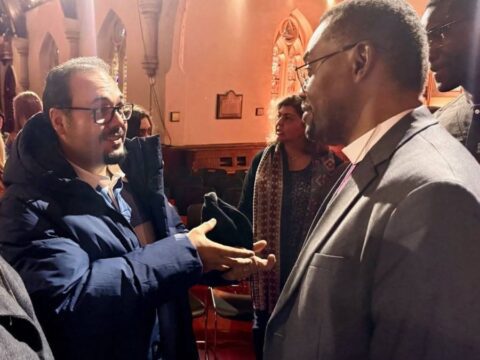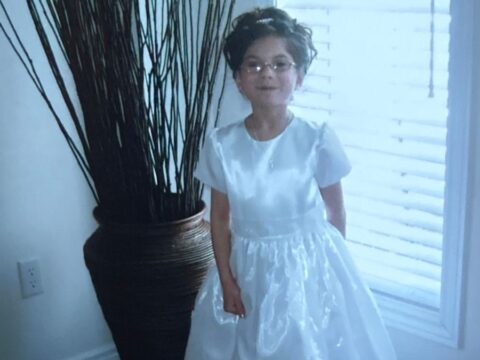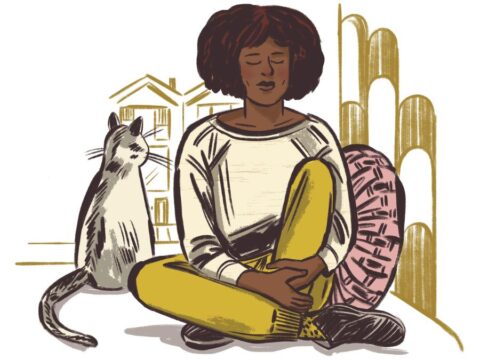I know a lot of closeted queer people in the church. This is a fact that I’ve always been shocked by, no matter how many times I discover that a congregant or friend is holding onto a secret about their sexuality. I never thought that I would be holding onto a secret of my own.
I grew up thinking that being gay was a sin, and it wasn’t until very recently that I became affirming of the LGBTQ+ community myself. Once I became affirming, I was able to really examine my own feelings and thoughts, and opened myself up to accepting my full self. In the process, I realized that not only do I affirm the queer community and wish that the wider church would open their arms up to queer folks, but that I identify as part of the LGBTQ2 community myself. I am bisexual.
You may unsubscribe from any of our newsletters at any time.
Things become a bit more complicated, because I am also married to the senior pastor of a church that is currently not affirming. While our specific church embraces the queer community, and my husband and I are both affirming, our denomination’s journey from being formally non-affirming to affirming is long and complex. It’s one I’ve watched from the sidelines, feeling even more helpless, knowing that my future is being discussed, picked apart and decided by a group separated from the reality of being queer in the church.
More on Broadview:
- Inside the fight for LGBTQ2 inclusion in evangelical churches
- Proud, queer and celibate
- LGBT Christians push to overturn Young Life’s ‘sexual conduct’ policy
I would love to come out publicly as bisexual. I love my husband and am sexually attracted to him, and have no plans to explore my sexuality outside of my marriage. I have also come out to him, and he has been extremely supportive in this process. But being bisexual and closeted makes me feel like I’m living in secrecy and shame, and not able to be honest about who I fully am. I also want my children to be raised in a home that acknowledges queerness and doesn’t hide it. What if one of my kids comes out as queer, and I have to admit that I’ve been secretly hiding this part of myself?
I haven’t come out yet because I know that to do so would blow up the lives of my family. Church members will not react well and my husband will have to deal with the fallout. What if he loses his job? What if I lose friends? What if people treat me differently or act uncomfortable around me? How will my family react, and will they feel embarrassed or awkward?
But I want to come out. I want to be open about my sexuality, for myself and my freedom, but also for the church. Imagine how incredible it would be to have a queer pastor’s wife. What kind of change could that produce at the local level and beyond? I know that my openness could mean that a gay kid in the church feels welcome, safe and loved. To be out would mean that our church would formally become a place of inclusivity and safety. To have a visibly bisexual woman married to a pastor would mean opening up new conversations and ideas with others both inside and outside of the church. It could be transformative, both for me and for those around me.
It’s terrifying and painful to imagine the rejection that I will certainly face. I’ve seen it firsthand from church members who have come out, and I know it will be no different for me. But to live in shame does not feel like a God-honouring way to live. I believe that Jesus walks with me, hand-in-hand, guiding me towards a path of openness and honesty about who I am.
We hope you found this Broadview article engaging.
Our team is working hard to bring you more independent, award-winning journalism. But Broadview is a nonprofit and these are tough times for magazines. Please consider supporting our work. There are a number of ways to do so:
- Subscribe to our magazine and you’ll receive intelligent, timely stories and perspectives delivered to your home 10 times a year.
- Donate to our Friends Fund.
- Give the gift of Broadview to someone special in your life and make a difference!
Thank you for being such wonderful readers.
Jocelyn Bell
Editor/Publisher















If we had a dollar for every time this writer said “me, myself and I” we could retire. (I detect selfishness)
Guess what? Your life should be based on Christ, not feelings.
If you have shame, it is because you know your act is against God’s moral laws. (I’m thinking you have guilt.) Shame is God’s way of keeping you pure in His eyes. If we did not have shame, we could never ask God for forgiveness and walk according to His Word. You need to be honest with yourself, then with God, never mind others at this point.
Philippians 4:5-9 would be a point for the writer to consider.
Being a pastor, a pastor’s spouse or a pastor’s children is challenging. We’re not thought of as having the same feelings and faults as others but are somehow held to an impossible standard. Folks become offended if we swear or smoke or have a drink. We’re not supposed to be sexual beings (although how they account for children I have no idea). We’re not supposed to be offended or hurt when members of the congregation are against us. It’s a difficult task and to add to that, when we step outside these unwritten boundaries a pastor can indeed lose her/his job because the United Church Manual states that the pastoral relationship can be ended without cause so there is no recourse.
My solution would be to investigate moving to a more inclusive pastoral charge. Yes there is upheaval but it’s better to be among those who will accept you than those who won’t. Religion and politics abound with ignorance, and to try and change people is a battle that takes more time than you have. Ask God to help you find a congregation that works for you.